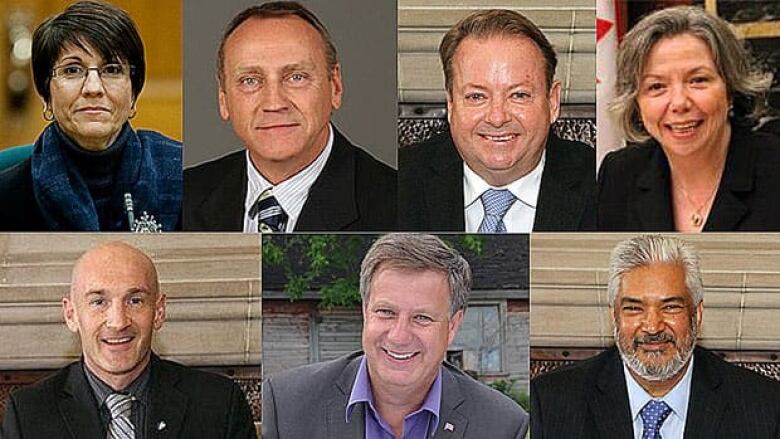Robocalls election challengers win bid to admit key evidence
Federal Court judge accepts court records from Elections Canada investigation

A group of voters challenging the election of six Conservative MPs scored a small victory Friday when the judge in the case decided to allow a key piece of evidence to be considered.
The voters wanted Judge Richard Mosley toconsidercourt records that support their contention of a widespread campaign of harassing and misleading live phone messages and robocalls. They allege the calls deterred people from casting ballots in the last federal election, and that the Conservative MPs benefited from it.
The voters say the MPs in their ridings should lose their seats. Conservative officials have consistently denied the allegations and say they ran a clean campaign.
Mosley agreed Friday to consider records that include an assertion by a voter that he didn'tcast a ballotbecause ofa misleadingphone call. The man, whose name is blacked out in the publicly available records, told an Elections Canada investigator that a phone call had directed him to thewrong polling station and then didn't vote because of that.
A decision on the court challenge isn't expected for another month.
The court records also show Elections Canada officials have spoken to voters across the country who allege they received the misleading live and automated robocalls.
The documents, known as an Information to Obtain a production order or ITO,were filed by Elections Canada investigator John Dickson.
Records include 45 complaints
Dicksonis looking at 45 reports from Rogers customers in 28 ridings. Another ITO released last fall showed he is also investigating 62 complaints in 36 ridings from customers who use Shaw for their phone services. Another investigator is looking into complaints in 20 Quebec ridings.
Dickson's investigation covers voters in:
- British Columbia.
- Alberta.
- Manitoba.
- Ontario.
- New Brunswick.
- Newfoundland.
The eight voters who broughtthe Federal Court challengehad little evidence to support their contention that people were deterred from voting a connection necessary to their case other than an anonymoussurvey conducted by telephone that found people who said they hadn't voted following one of the calls.
"Without predetermining either the weight I will give to this evidence, or the inferences I will draw from it, I find that it may affect the decision that I will make," Mosley wrote in his decision.
"It will therefore serve the interests of justice and assist the Court for it to be admitted to the record. It is not disputed that it was not available at an earlier date and its admission will not unduly delay my decision. The admission of this RogersITO will not cause substantial prejudice to the respondents, as they have had the opportunity to make submissions on ITO evidence generally, which will apply to this one as well."
Records released aftercase argued
The voters bringing the challenge arebacked by the Council of Canadians, a frequent foe of the Conservative government on environmental and transparency issues.
The court records are from a separate investigation by Elections Canadainto hundreds of complaintsabout misleading or harassing calls. They weren't made public until Jan. 10, 2013, a few weeks after the case was argued in Federal Court.
The MPs whose seats are being challenged contested the court records because the assertions weren't made in direct testimony and couldn't be challenged, as well as because the court proceeding had finished. They also argued that the documents don't cover the ridings challenged in the court case.
The voters are challenging the Conservative wins in:
- Nipissing-Timiskaming in Ontario.
- Elmwood-Transcona and Winnipeg South Centre in Manitoba.
- Saskatoon-Rosetown-Biggar.
- Vancouver Island North.
- Yukon.












_(720p).jpg)


 OFFICIAL HD MUSIC VIDEO.jpg)
.jpg)



























































































